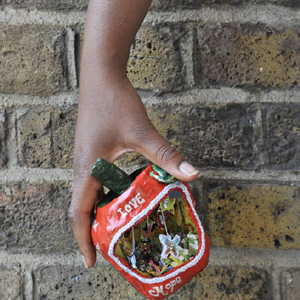Anywhere else in the world, prison is an aberration. In the Soviet Union, though, it was seen as the norm. And it is this heritage that has created such a complex set of challenges for those attempting to introduce reforms and human rights. What was so utterly distinctive about incarceration under the Communist regime was not that the prisoners were worked, often to death, on extraordinarily ambitious economic projects, but that prisoners' work was regarded as central to the advancement of the Soviet economy. Prisoners were therefore portrayed as perfect proletarians, actual builders of communism. When they returned to their communities, they returned not as profaned ex-convicts but as model citizens. Prisons, for all their horrors, were about loyalty to the cause, about honour, about glory.
For the entire Stalin period (1926-1952) prisons were everywhere in the USSR. The precise number held in Soviet prisons during that period has become a matter of guesswork. The figure of 12 million is widely accepted as accurate because the figure is based on actual numbers incarcerated and not total numbers 'repressed' (which includes many millions who were not sent to the camps).
Soviet economic rationalism created an unusual - but typically Russian - cultural configuration: rather than leading to the 'otherness' and 'alienation' of prisoners, imprisonment became the norm. It was necessary to make habitable remote regions of Russia where it was regarded as too costly to provide waged labour. And since prisons were a microcosm of Soviet life, where health, education, housing and surveillance all had their Gulag equivalent, they came to be accepted as part of the system, as did very high prison populations.
Penal bingeing, fed by a diet of propaganda and fear, led not to an anti-prison consciousness but to a deeply ingrained psyche about the real contribution work can make in society. So the prison ethos actually strengthened the powerful cultural symbolism of the Soviet work ethic.
The impact on the penal system of the collapse of the USSR in 1991 was monumental. When the doors of the prisons were opened, the reality was shocking. The remand prisons (the SIZO) were bursting at the seams, with many prisoners standing in queues to sleep while others choked to death because of a lack of oxygen. Human rights violations were commonplace and prisoners had absolutely no legal rights.
With the collapse of the Soviet economy, prisons could no longer function as an industrial monolith. Moreover, in terms of political ideology, a vacuum had been created. The prison world that I stepped into, when I set out to study the system, was in chaos.
Over a five month period in 1999 I conducted an ethnographic study of different regimes for men in western Russia (in Smolensk) and in Siberia (Omsk), followed by a second study in 2003 interviewing 32 prison personnel. To say that the fieldwork was riveting and hair-raising would not be an exaggeration. I was expected to demonstrate my sensitivity to Russian culture by reciting Russian poems prior to interviews, and engaging in vodka drinking and singing folk songs during interviews.
As a result of my research I came to understand the deep ideological upheaval taking place in the post-Soviet system.
In Smolensk region in western Russia, I discovered that westernised notions of imprisonment (punishment and rehabilitation) and of crime (criminals are innately bad) formed the basis of new interventions. Programmes such as behavioural psychology, soothing words transmitted through Tannoy equipment and cognitive behavioural therapy, were being embraced with rapid speed - in one case such programmes had been in place since 1993.
Many prison officers and managers were experiencing significant difficulties in grafting a western rhetoric of human rights and offender-focused interventions onto their existing practises. I heard many confused and concerned voices struggling to survive in the ruins of industrial penal colonies. The prison system has developed into a quasi-devolved management structure. The regions (oblast) are responsible for facilitating and overseeing practices and resources. The prisons retain a federal connection to the central administration in Moscow. However, the turbulent political and economic transition, coupled with the sheer magnitude of managing the entire penal infrastructure from Moscow, has resulted in many disparate regional practices and ideas emerging.
A radically different picture emerged in the Omsk prisons in Siberia, and in Kemerovo prison in eastern Siberia. The prisons in Omsk have retained the ethic of work as the foundation for prisoner reform. The respondents there viewed crime not as an innate flaw in the individual, but as a consequence of complex social and economic factors: prisoners, I was told, were influenced by their environment and not by their personality. The prison authorities in the oblast targeted the social harm that crime causes. Prisoners engaged in a range of community programmes, work and training initiatives that arose from partnership programmes with local schools, councils, universities and businesses. Guiding principles came from reformed Soviet concepts such as 'inculcating an ethic of work', 'taking responsibility for one's labour' and 'giving back to victims through work'.
These different ideologies and practices have arisen since the collapse of the Soviet system. The industrial sector in Russia is weak and the prison system has experienced mixed fortunes in capitalising on low level industry. Regions in the east are able to exploit natural resources such as forestry to provide for prison labour. In western Russia, however, natural resources are in less abundant supply, so the regions are left to compete in the light industrial sector. Cheaper imports from the Far East have made it almost impossible for the prisons to offer competitive labour to the market. In the face of a declining industrial sector, it is no wonder that alternative penal discourses are emerging.
In addition, western Russia is often referred to as European Russia. Prisons located there have become more readily exposed to cultural influences from the west than in the rest of the country, where ideas have taken longer to permeate the penal periphery. There has been a sustained international effort to hold the prison authorities to account for human rights abuses in Russian prisons. Adapted versions of westernised programmes offer instant universal credibility, due to their 'western' origins.
In many regions, prison labour is necessary if the prisons, and the prisoners themselves, are to survive. Although prisons are expected to rehabilitate prisoners as well as punish their law-breaking behaviour, a prisoner in Russia has to work in order to live, and not for the sake of the national economy, as historically was the case. Central government funding and resources have improved under President Putin, but funds are not always guaranteed, so it is left to the regions to provide for the prisons. When the central government allocates resources, it does so on the basis of what the prisons can do for themselves, bearing in mind their access to raw materials and markets. Every prison I visited utilised a system of barter to provide these extra items. For example, a local farmer may require repairs to his/her farming equipment. The farmer will visit the prisons and offer dairy products from his/her farm in exchange for repairs to the equipment.
Since barter has everyday usage in Russia, its emergence in the prison realm is unsurprising, but demonstrates how instrumental the private sector has become in the provision of resources. It also raises the question of just how far Russia has reformed the forced labour practices that historically were associated with the Gulag camps.
On the other hand, the use of barter pushes the boundary of social inclusion. Quite simply, a unique form of social patronage operated in the remote regions where barter was relied on the most. Local communities are kept informed of daily work and manufacture in the prisons, and prison personnel are active in seeking out opportunities to barter with locals. In one prison in rural Kemerovo, I observed prisoner cowboys wheeling and dealing with local farmers.
This is not to assume that Russian prisons offer a rural penal idyll, a utopia of social inclusion where the locality and the prison meet and mesh, but there were obvious economic and social benefits to the barter system that certainly test the limits of what we expect a modern, humane prison system to look like. What do all these practices mean for a complex country such as Russia, which is increasingly welcoming human rights into its sensibility?
Following a decade of transition, blurred demarcation and fluid boundaries, the penal system is moving towards modernisation through reform and the implementation of the rule of law, minimum standards and human rights. Russia's path to penal modernisation has been aided by external organisations, NGOs, consultants and increased regulation. Inspections by 'Special Rapporteurs' and reports to the Council of Europe ensure that Russia can be shamed into global integration or political isolation. But this strategy brings its own dangers.
Russia would appear to violate human rights norms in prisons because the daily task of officers is to find resources to feed prisoners. Rather than work for rehabilitation, prisoners work to eat.
For the majority of prison officers, however, human rights are irrelevant, as the concept was not created for Russian prisoners by Russian personnel but instead was brought into the country by 'outsiders'. One officer told me: "It's all about making us feel bad. 'Have you done this procedure correctly?' 'Yes.' 'Have you treated so and so fairly?' 'Yes.' If I said no, I'd receive a dressing down."
Such views cannot be assumed to be representative of the entire prison system, but it is undoubtedly the case that a more distinctive and effective penal system based on local sensibilities is finding difficulty in establishing itself. Human rights may be advocated cogently from the corridors of power in Geneva, but they are interpreted cynically by those on the ground as illustrative of a new power politics, which demarcates territories based on whether they administer 'good' or 'bad' punishments.
If human rights are to matter, in Russia and elsewhere, they must be introduced in the context of the local culture, involving local people in penal politics. Otherwise, human rights in prisons, particularly for societies in transition, will become a mere illusion - fundamentally flawed by virtue of their origin.

